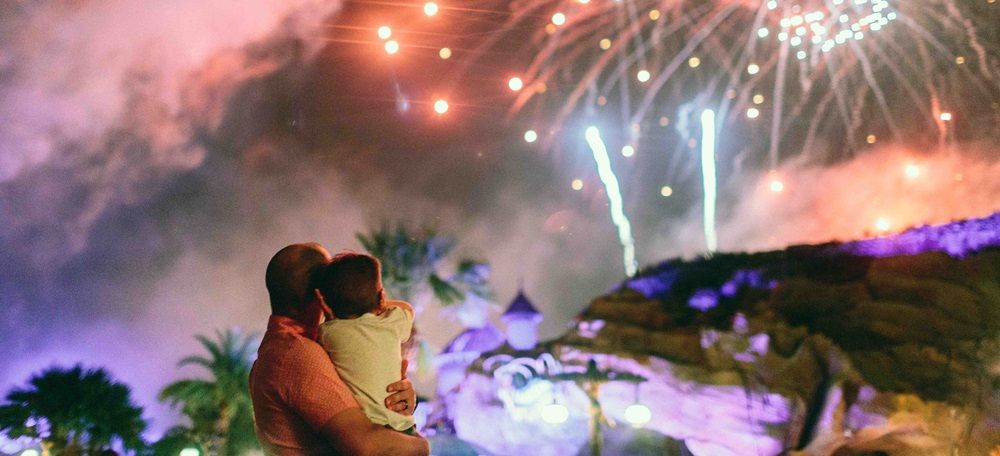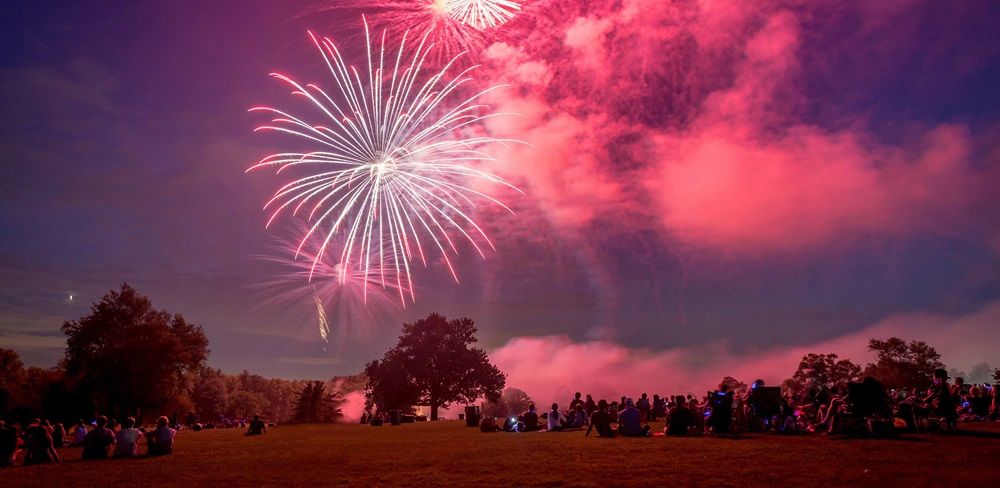Tips for Protecting Your Hearing on July 4th

It happens every year on or around July 4th – the American tradition of celebrating the Independence of our Nation by attending major fireworks events in towns and cities across the country…or staying close to home with family and friends and having some neighborhood fun with backyard firecrackers or small fireworks displays. It seems that no matter how many warnings are posted prior to this holiday, every year ERs are filled with adults and children that sustain injuries resulting from “home-based” celebrations. Most often these are burns and painful injuries to the hands, arms, torso and face.
There is another serious risk not often mentioned that happen to people around this time of year as the result of fireworks and firecrackers — that is hearing loss. Whether at a professionally run fireworks display or your own backyard event, this type of injury is very real, often overlooked, and can even be permanent – especially to younger children.

‘If it sounds too loud, it IS too loud!’
Fireworks are a result of burning gunpowder which releases a hot gas that rapidly expands. As this gas expands within the firework and runs out of room, the resulting explosion causes a blast wave. The blast wave vibrations can cause permanent damage to the delicate hair-like cells of the inner ear, or cochlea, if someone is in close range to the explosion.
While fireworks are very exciting to experience, people often think that the louder the sound the better the fireworks. This is a dangerous fallacy because these loud explosive wave blasts can potentially reach between 150 and 175+ decibels, well beyond what is considered a safe noise level for adults – and extremely dangerous for children. At this level of sound, even one exposure can cause possible permanent damage to the ears and hearing loss.
It has been accepted by various health and hearing organizations that the maximum safe decibel level for adults is under 140 decibels, and for children only 120 decibels, but the duration of the sound is a factor as well. The longer the sound continues, the more likely it can cause serious damage.

Important Safety Tips When Attending Fireworks
-
The most obvious precaution is to stay a very safe distance from the source of the fireworks. If you are attending a professional fireworks display, you should be as far back as possible to be able to enjoy the show, but not be impacted by the continuous wave blasts.
-
Always use ear protectors whether you are at a neighborhood event or a professional fireworks display. You can easily purchase a wide variety of hearing protection devices at various price points, such as foam earplugs, ear muffs, or ear bands.
We advise checking for the Noise Reduction Rating (NRR) on the packaging of items you buy. A NRR indicates the level of sound that earplugs block out when used without other noise-blocking products. Disposable earplugs typically receive a NRR rating in the low to mid 20s – with the highest possible rating being 33. The highest available NRR for earmuffs is 31. By combining earplugs with earmuffs the NRR protection is at a level of 36 – which is considered very high. Ear shields or ear bands have a NRR of around 25, depending on the manufacturer and style. Of course the higher the NRR protection, the better it is for your hearing — but any ear defender is better than none. -
We advise checking for the Noise Reduction Rating (NRR) on the packaging of items you buy. A NRR indicates the level of sound that earplugs block out when used without other noise-blocking products. Disposable earplugs typically receive a NRR rating in the low to mid 20s – with the highest possible rating being 33. The highest available NRR for earmuffs is 31. By combining earplugs with earmuffs the NRR protection is at a level of 36 – which is considered very high. Ear shields or ear bands have a NRR of around 25, depending on the manufacturer and style.
-
Of course the higher the NRR protection, the better it is for your hearing — but any ear defender is better than none.
-
NEVER expose infants and very young children to fireworks. A baby’s ear canal is quite small and the pressure from a wave blast entering the ear is far greater and can cause serious and permanent damage! Even normal sounds that do not seem loud to an adult, could be dangerous – as well as startling – to an infant or child under 2 years of age. If you find yourself at a fireworks event, be sure to do your best to protect your child’s ears and do not stay more than a short time. And if the “booms” sound really loud to you, then realize that they are much more upsetting to young children and babies.
-
Preferably do not attempt to put on a fireworks display at your home or attend them in your neighborhood. These backyard celebrations can turn suddenly dangerous due to the inexperience of people ‘playing with fireworks and firecrackers’. Instead, take advantage of local professionally run events and keep your distance while enjoying the beautiful displays.
“Now Hear This”…
If you, (or someone you know), think you may have a hearing loss after attending a fireworks display, seek out a hearing professional at once. Protecting your hearing and your children’s hearing now will enable you to enjoy the sounds of fireworks for years to come.
For Professionals**😗* We recommend sending an email to all of your patients advising them and their families of the extensive damage fireworks can cause and suggesting how they can protect their hearing throughout the long holiday weekend.
All of us at e3 Diagnostics wish you and your families and friends a Happy, Safe, and Spectacular 4th of July Holiday!
